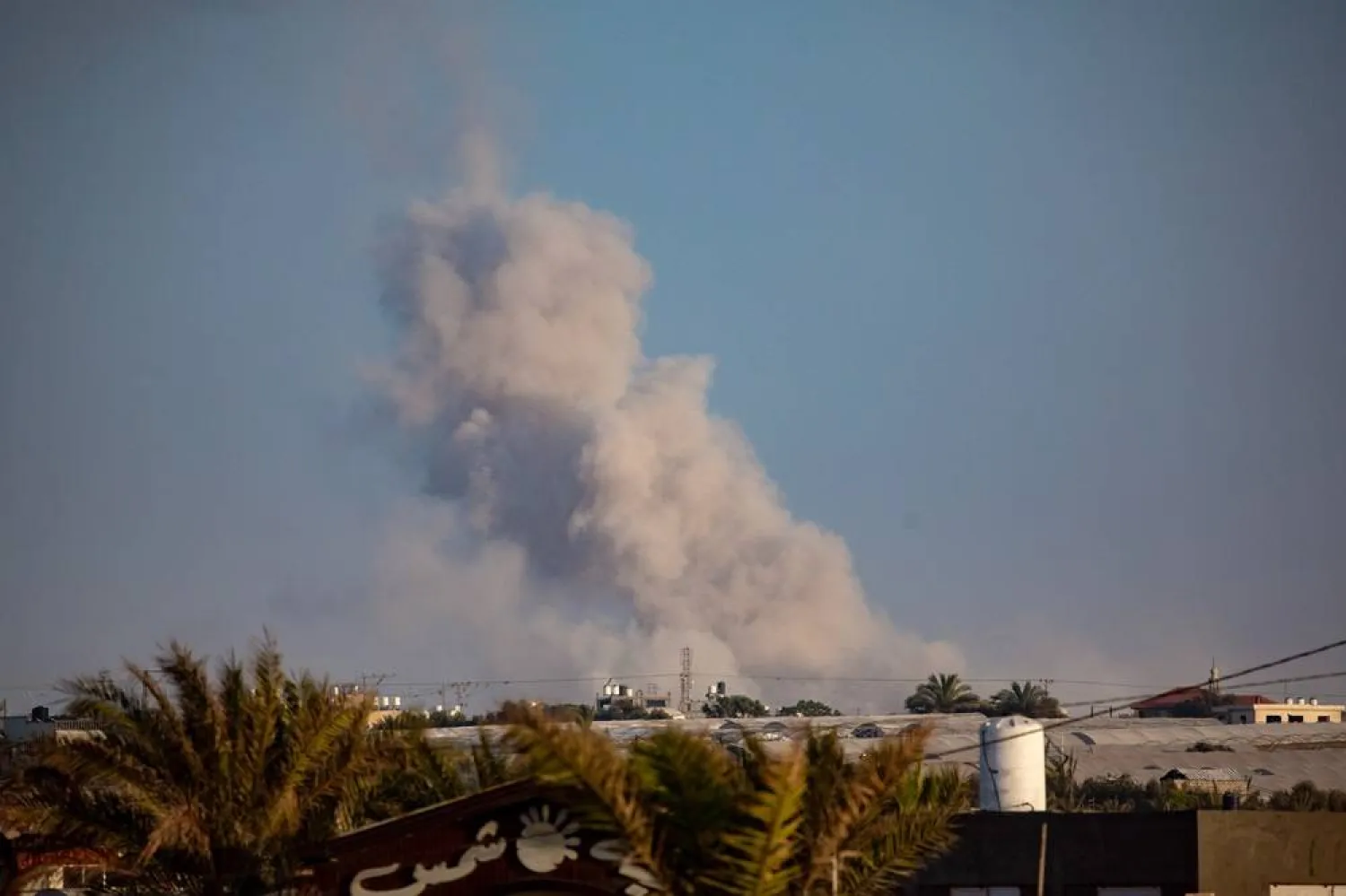Two Israeli air strikes targeting aid supplies killed at least 11 Palestinians in Gaza on Monday, medics said, as Israeli tanks pushed deeper into Rafah in the south and fought their way back into areas in the north they had already subdued months ago.
One strike at a food distribution center in Gaza City, near the Shati historic refugee camp, killed three people. Another, near Bani Suhaila town in the southern Gaza Strip, killed at least eight, including guards who accompany aid trucks, the medics said.
There was no immediate comment from Israel, which denies attacking aid efforts and accuses militants of causing harm to civilians by operating among them.
Overnight, an Israeli air strike at a medical clinic in Gaza City killed the director of Gaza's Ambulance and Emergency Department, the enclave's health ministry said. Israel's military said that strike had killed a senior Hamas armed commander.
The health ministry said the killing of Hani al-Jaafarawi brought the number of medical staff killed by Israeli fire since Oct. 7 to 500. At least 300 others have so far been detained.
In a statement, the Israeli military said the strike targeted Mohammad Salah, who it said was responsible for developing Hamas weaponry.
NO CEASEFIRE ACCORD
More than eight months into the fighting, international mediation backed by the United States has so far failed to bring a ceasefire agreement. Hamas says any agreement must bring an end to the war, while Israel says it will agree only temporary pauses in fighting until Hamas is eradicated.
In Rafah, near the border with Egypt, Israeli forces which took control of the eastern, southern, and central parts of the city pursued their raid into the western and northern areas, said residents, describing heavy fighting.
On Sunday, residents had said Israeli tanks had advanced to the edge of the Mawasi displaced persons' camp in the northwest of Rafah, forcing many families to leave northward to Khan Younis and to Deir Al-Balah in central Gaza, the only city in the enclave where tanks have not yet invaded.
"The situation in Tel Al-Sultan, in western Rafah, remains very dangerous. Drones and Israeli snipers are hunting people who try to check on their houses, and tanks continue to take over areas overseeing Al-Mawasi further west," Bassam, a resident of Rafah, told Reuters via a chat app.
The Israeli military said forces continued "intelligence-based targeted operations" in Rafah, locating weapons and rocket launchers and killing fighters "who posed threats to them."
In the north of the enclave, where Israel had said its forces completed operations months ago, residents said tanks had pushed back into Gaza City's Zeitoun suburb and were pounding several areas there.
In Deir al-Balah, now the last refuge for many thousands of Gazans following the assault on Rafah, medics at a clinic were trying to treat malnutrition in children and measure the extent of hunger stalking the Strip.
"With the displacement, communities are settling in new locations that do not have access to clean water, or there is not adequate access to food," said Muaamar Said, a doctor with aid group International Medical Corps. "We fear there are more cases being missed."
NETANYAHU SAYS INTENSE FIGHTING COULD END SOON
Israel's ground and air campaign in Gaza was triggered when Hamas-led fighters stormed into southern Israel on Oct. 7, killing around 1,200 people and seizing more than 250 hostages, according to Israeli tallies.
The Israeli offensive in retaliation has killed almost 37,600 people, according to Palestinian health authorities, and has left Gaza in ruins.
Since early May, fighting has focused on Rafah, on Gaza's southern edge where around half of the enclave's 2.3 million people had been sheltering after fleeing other areas.
Netanyahu said the phase of intense fighting against Hamas would end "very soon".
In an interview with Israel's channel 14, he said forces based in Gaza would be freed to move to the north, where Israel has warned of a potential full-blown war against Lebanon's Hezbollah movement, which has struck the border region in what it says is solidarity with the Palestinians.
"After the intense phase is finished, we will have the possibility to move part of the forces north. And we will do this," Netanyahu said.
The interview was Netanyahu's first since the start of the war in a television format he has favored in election campaigns.
He said he would support only a temporary ceasefire, before troops would return to fighting. Hamas said this was evidence that he was reneging on a truce offer touted by the White House and backed by the United Nations.
The remarks showed that Netanyahu was using ceasefire negotiations only as a stalling tactic while combat continues, Ezzat El-Reshiq, a senior Hamas political official who lives in exile, said in a statement.









